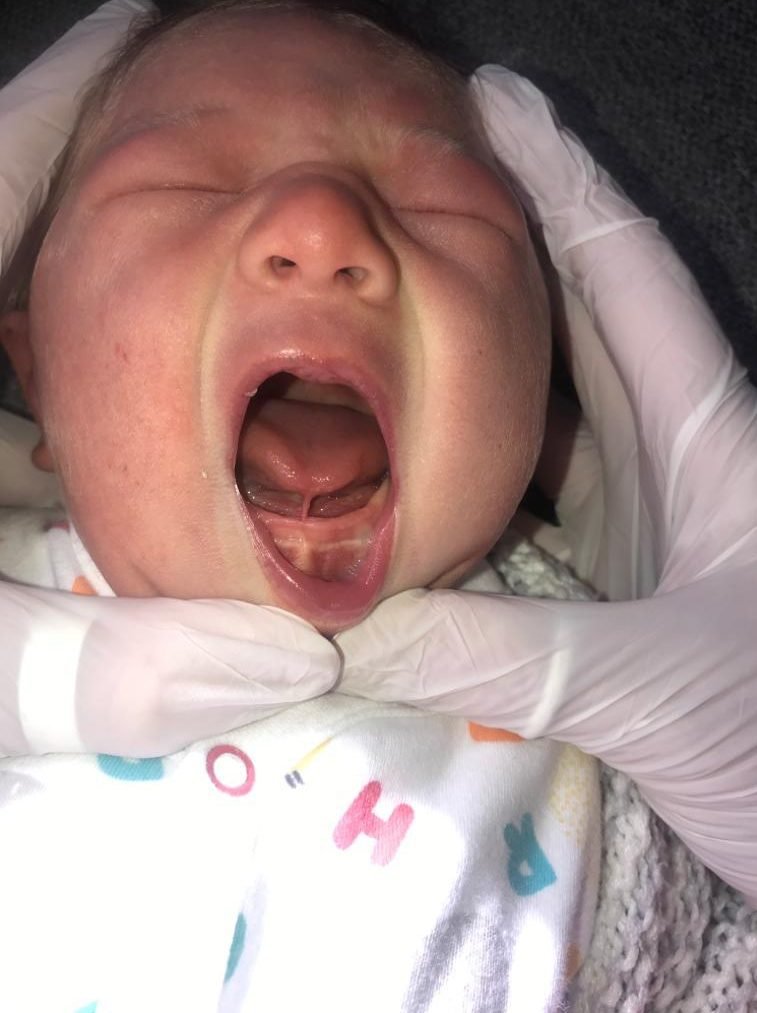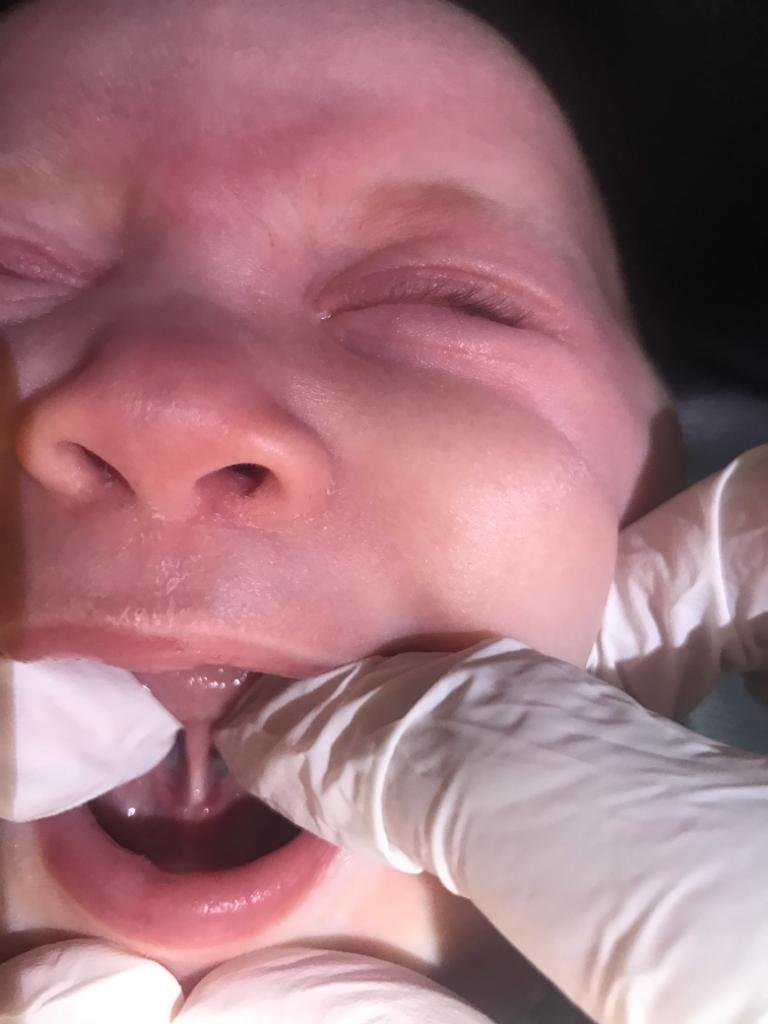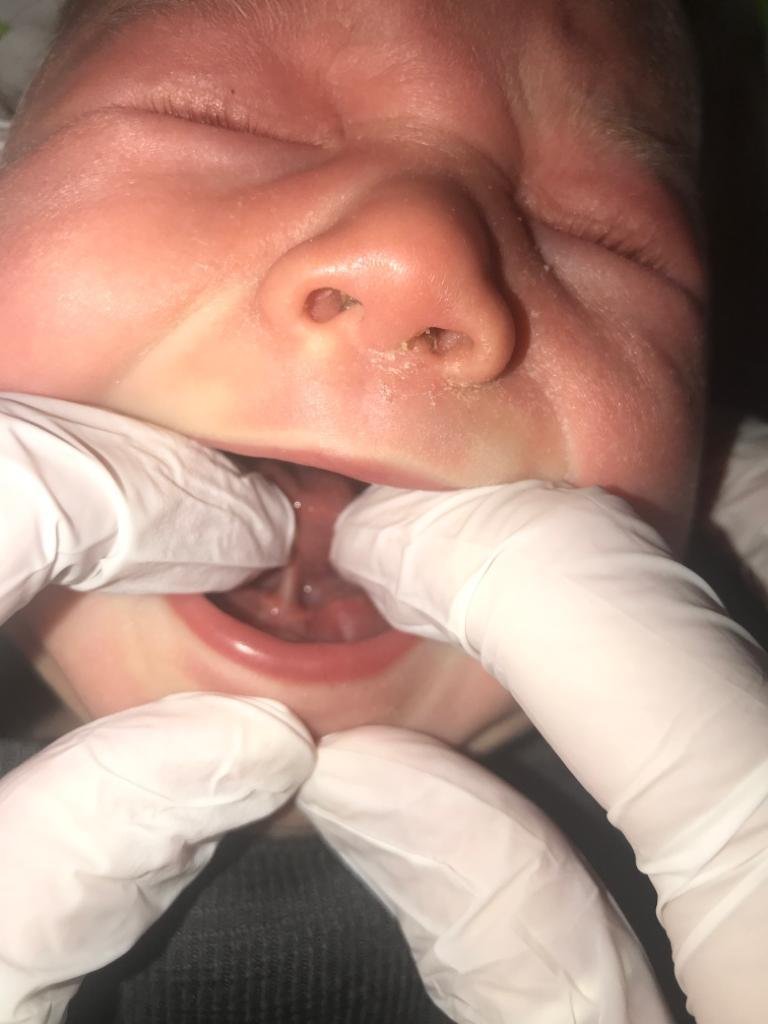What is a tongue-tie?
Learn the basics of what you need to know if you suspect your baby has a tongue-tie
It's all about function!
Most people have a stretchy membrane under the tongue, called the lingual frenulum. The mere presence of a lingual frenulum, which can be seen or felt, does not mean your baby has a tongue-tie.
A tongue-tie (also known as Ankyloglossia) is diagnosed when this membrane is abnormally short or tight and ONLY when it restricts tongue function (prevents normal movement).
It can’t be diagnosed just by ‘taking a look’, with the baby sitting on an adult’s lap, and most certainly can’t be diagnosed over a video call. Why? Because it’s all about function, not appearance!
Anterior vs. posterior tongue-tie – what does it mean?
An anterior tongue-tie (at the front)
An anterior tongue-tie is diagnosed when the membrane is attached at, or close to, the tongue tip. The tongue tip may look notched or even heart-shaped. The frenulum often runs from under the tongue (near the tip) to just behind the baby’s gum ridge.



Posterior tongue-tie – at the back
When the membrane is attached further back from the tip of the tongue – usually where the tongue is joined to the floor of the mouth – and ONLY if it’s causing a restriction, then it’s classified as a posterior tongue-tie.



Remember: A frenulum at the back of the tongue is not a posterior tongue-tie!
Sometimes the tongue may appear normal, but tongue-tie is diagnosed via digital assessment of the tongue function (using a gloved finger to check what movements the tongue can easily make). These type of tongue-ties can often be very restrictive and therefore affect feeding.
When is treatment for a tongue-tie needed?
It’s estimated that tongue-tie affects up to 10% of the population, but not all cases need treatment as some don’t affect feeding.
The presence of a tongue-tie can be associated with affecting eating and speech in later life, but it is not possible to predict this outcome. Some people who grow up with a tongue-tie do not have any issues at all.
Babies who do struggle to feed, either breast or bottle, may benefit from treatment to release the restriction that the membrane causes, enabling them to feed more effectively.
The decision on whether or not a tongue-tie is impacting on feeding and whether it is appropriate to offer a division/release should only be made after a detailed feeding history has been taken and the tongue function has been assessed by a qualified Tongue-tie Practitioner.
